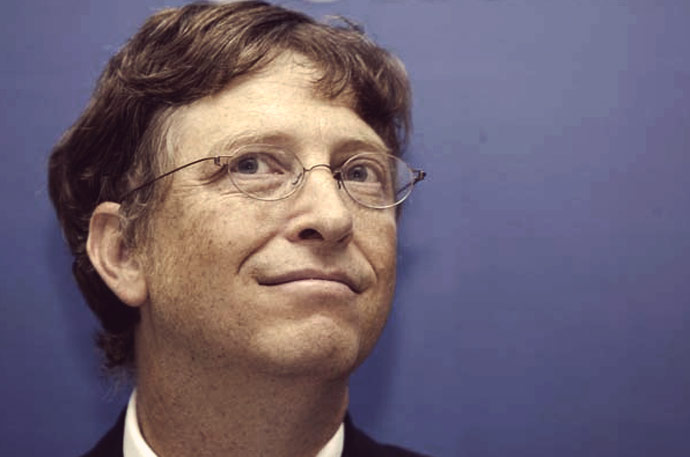Bill Gates Plans To Donate Billions Toward Fighting Polio
If money can’t buy happiness, maybe giving it away does. Multibillionaire Bill Gates—the second richest man on Earth in 2012 according to Forbes—has already donated $28 billion with his wife through the Bill and Melinda Gates Foundation and plans to donate billions more. Gates recently told the UK’s Telegraph he has no use for money and hopes to use his to extend the lives of others.
I’m certainly well taken care of in terms of food and clothes,” he said. “Money has no utility to me beyond a certain point. Its utility is entirely in building an organization and getting the resources out to the poorest in the world.”
Gates, 57, plans to spend $1.8 billion in the next six years to help eradicate polio.
My wife and I had a long dialogue about how we were going to take the wealth that we’re lucky enough to have and give it back in a way that’s most impactful to the world,” he said. “We’re focused on the help of the poorest in the world, which really drives you into vaccination. You can actually take a disease and get rid of it altogether, like we’re doing with polio.”
According to Time, polio—which was endemic to 125 nations just 25 years ago—has become nearly isolated to three countries in the world: Afghanistan, Pakistan and Nigeria. In fact, in 2012 the disease—which is highly infectious and can provoke paralysis in a matter of hours—infected only 215 people worldwide. Time estimates that $1 billion per year over the next few years could save $50 billion over the next 20 years in the cost of continuing to chase the disease around the globe and treating infected children.
All you need is over 90 percent of children to have the vaccine drop three times and the disease stops spreading,” Gates told the Telegraph. “The number of cases eventually goes to zero.
“When we started, we had over 400,000 children a year being paralyzed and we are now down to under 1,000 cases a year. The great thing about finishing polio is that we’ll have resources to get going on malaria and measles.”










































